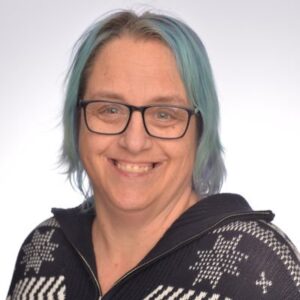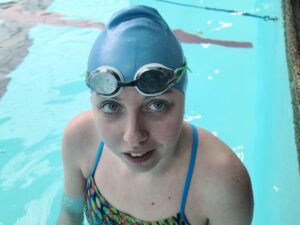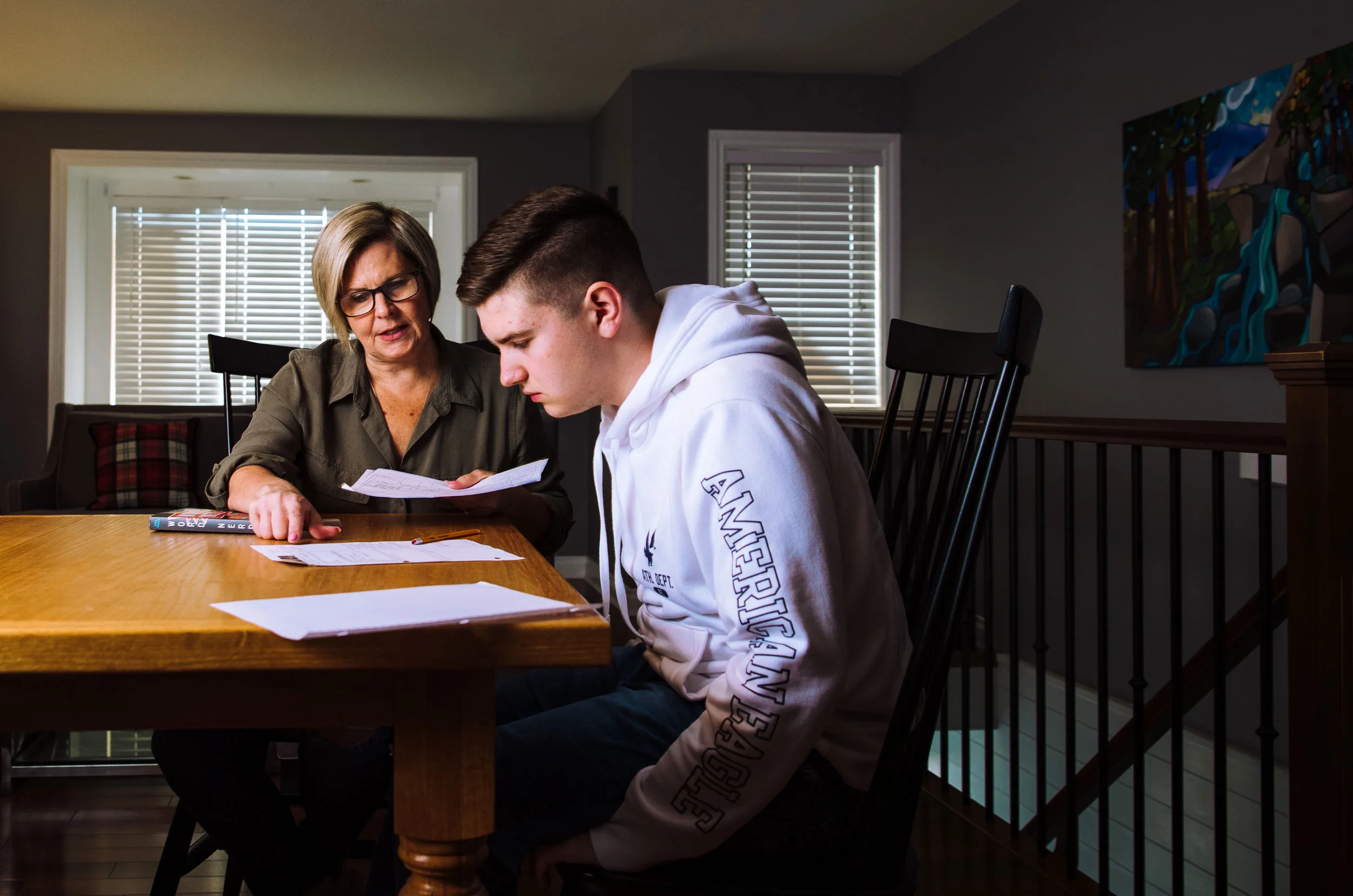This month, we are highlighting the work of parent and self-advocate Michelle Goos. Our content writer, Katie Miller, interviewed Michelle about her experience raising a family as a person with a disability, and her project “Supporting Parents With Diverse Abilities”

Michelle Goos
“This project was important to me to do so parents with diverse abilities can have the right supports and can feel safe and not judged as a parent (like I was)”
Michelle Goos is a mother and advocate who lives in Victoria with her husband and daughter. She has been working for Community Living BC (CLBC) for 5 years as a Strategic Initiative Advisor, where she “helps design and test new programs for people that they serve and help under the umbrella [of CLBC].”

Michelle has always been an advocate, but she really started focusing her advocacy efforts on issues of disability and parenthood when her daughter was born. Like Michelle, her daughter also has an intellectual disability and was diagnosed in grade 3. She’s now 25 years old and lives on her own in a shared living situation. Also like her mom, she loves a challenge, and is a member of an open-water swim team called the Spirit Orcas that swims in oceans and lakes with no wetsuits, and took on swimming the length of the English Channel in 2020!
For people with disabilities, getting the support they need to raise children can feel like an uphill battle. As Michelle explains, “I’ve had some really crappy jobs…people yell at you, and… sometimes you’ll get maybe one day a week on-call… I always wanted to quit those jobs, but I needed the money to help support my family because I never got PWD (Persons with Disability benefits). My husband made too much [for us to qualify for PWD assistance] so I had to work. I couldn’t quit because we needed the extra money to help support the family.” PWD benefits can be helpful to parents to support themselves and their families, but when people are married or common-law, one person’s income can affect the others’ benefits, which can discourage people from getting into serious relationships, living together or getting married. “A lot of people want relationships,” she says, “but they don’t want to lose that amount of money. everybody has the right to a relationship… we all need to have the right to be happy.”
In many cases, as Michelle explains, “I’ve heard stories of people being watched; you know. Maybe [if you’re at] a mall, people are watching and following you, make sure that you’re doing the parenting thing the right way…and sometimes the school will even get involved too… sometimes people will just show up unannounced at your door, that’s scary.” It’s heartbreaking to think about someone’s every move made with their child being watched and judged to determine if they’re qualified to look after them. Michelle spoke about a need to “figure out a way to get more connected with government services because they still have their protocols.”
Unfortunately, not many programs exist out there to support people with disabilities around parenthood and that makes it difficult to find any sort of help or advice when you yourself are considering becoming a parent. Michelle explained that “she got some support from a parenting program for people with disabilities in Victoria,” and as far as she’s aware, it is the only remaining program of its kind in BC. Michelle has been lucky in that she has some family connections to leadership in the community living sector, but she’s very aware that more programs and projects are needed to help parents or future parents who don’t have these kinds of connections.
To address some of these concerns, Michelle has begun a project called Supporting Parents with Diverse Abilities which aims to “[help] Community Living understand the current situation of parents who are eligible for CLBC and what supports of changes could help. “We are just at the beginning of the research” Michelle says, ‘and there is no data out there to say how many parents with disabilities are under the Community Living BC umbrella, which is scary…” She hopes to “try [and] to make it so everybody understands that everybody’s needs are different…it’s a right to be able to have a child, and that no one can take away from us. We just need to support the parents in the way that that person needs.”
She imagines a future where people can “be proud and just say “Hi! My name is ___ and I am a parent with a disability and don’t need to hide behind a tree.” Support and understanding can go a long way in helping create a better community for everyone.
Michelle has some advice for people in support roles; whether it’s as a parent, caregiver, or support worker, including people with disabilities in conversations about parenthood, is a great place to start. She suggests that if a family member is pregnant or you see a pregnant person while walking together, take that as an opportunity to ask if that person has thought about having children or if that’s something they want in the future. Just like how her daughter could one day become a parent too. “You know, my daughter could [become] a parent at any time…and you just hope there is the right support for her when she is ready. And I hope it will be better for her, and if not, then I want it to be better for the next person down the line.”
Michelle’s project has an Advisory Committee to help guide the work that includes parents with diverse abilities as well as key service providers and advocacy groups. Karla Verschoor, Executive Director of Inclusion BC, is on the Advisory Committee for the supporting Parents with Diverse Abilities project to support Michelle’s important work. We believe in her vision for a world in which more people with disabilities are supported to raise children if they so choose.
Written by Katie Miller and Galen Exo
Do you enjoy real life stories about inclusion? This article was featured in the latest edition of our monthly newsletter, Inclusion in Action. Subscribe today to receive regular updates with stories like this.


